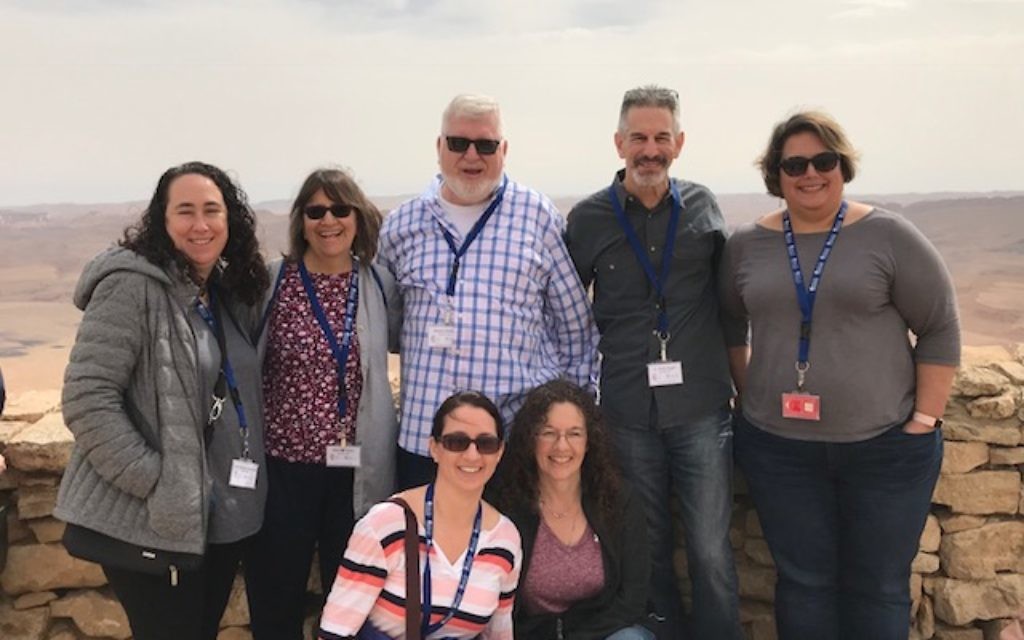Israel Is an Essential Lab for Jewish Educators
We need a Birthright program to ensure that our children are learning from people who know Israel.
Israel is a core value in American Jewish education. Our Jewish teachers need the same experiential immersion in Israel that our children get when we send them to experience Israel at an early age.
Access to Israel learning in the classroom and on the Internet is important; immersive engagement in Israel is vital.
Why? Many Jewish educators have never been to Israel. Often students have visited but not their teachers.
Get The AJT Newsletter by email and never miss our top stories Free Sign Up
Israel is complex and varied. Creating memories and wrestling with Israel’s cultural variations necessitate being there. Teaching about Israel requires managing nuance. Moreover, no blog or media outlet can keep track of all the innovation that takes place in Israel in virtually every walk of life.
Learning about our ancient homeland alongside cutting-edge agricultural and medical innovations provides students and teachers insight about Israel beyond the conflict. With understanding beyond the headlines and sound-bites, those things that might make us cringe and those actions that make us proud help us teach our students, families and leaders about the importance of taking risks, investing in our youth and practicing social responsibility.
This year’s Jewish Educators Assembly annual conference was held in Be’er Sheva. The city’s diversity is representative of Israel’s dynamism and innovation. Social justice elements were embedded into commercial achievements.
SodaStream displayed working partnerships among Jews, Palestinian Arabs and Bedouin. Women’s social and economic empowerment was showcased. We observed with pride state-of-the-art care for children and adults with physical and psychosocial development challenges (ALEH Negev). Seeing the abundance of urban greenspace and recreational development of parks reinforced our knowledge of Israel’s advances in protecting the environment.

It was all inspiring; we spoke incessantly about how to convey these experiences to our students back home.
We came home, convinced more than ever that Jewish educators must be beneficiaries of their own Birthright program.
Atlanta is ahead of the curve. Several months ago the Jewish Federation of Greater Atlanta unfolded its youth engagement directors mission to Israel; it must become an annual embrace for Jewish educators.
January brought the 70-member Federation mission associated with the Front Porch, propelling leaders in the community to interact with peers they might have never met, except perhaps in traffic jams on I-75/85.
The best solution for our youth to know all they can about Israel is providing them exposure to educators who experienced it firsthand.
After three decades in the field, I know that Jewish teachers do this work because of their dedication to the outcome, not for the income. When communities immerse their teachers in an Israel experience, they inspire institutional commitments to individuals who possess the passion to teach.
There is no risk making our students smarter about who they are and no risk in having them understand Israel’s variations through the firsthand experiences and talents of their teachers. Keep it up, Atlanta.
Steve Kerbel, an educational consultant in the Washington area, serves as national president of the Jewish Educators Assembly and is a project director for the Center for Israel Education.





comments